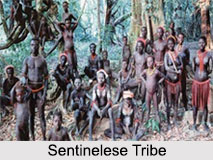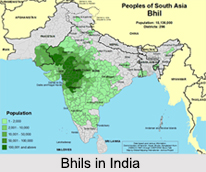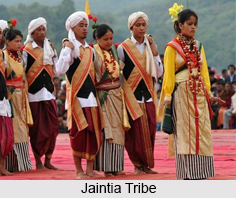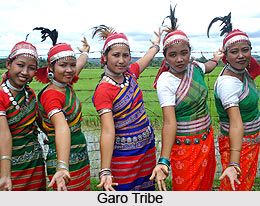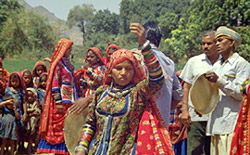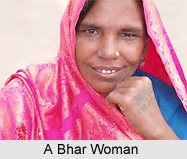 Bhar is an aborigine tribe. The tribe is found in places stretching from Gorakhpur in Northern India to Saugor in Central India. Agriculture is the main occupation of Bhar people and thus they live in the fertile eastern districts of Uttar Pradesh like Azamgarh, Gorakhpur, Jaunpur, Ghazipur, Gonda, Varanasi, Balia, Deoria, Faizabad, Basti, Mau and Maharajganj. They also live in Bihar and West Bengal. Their mother tongue is Bhojpuri but they also communicate in Hindi and Bengali.
Bhar is an aborigine tribe. The tribe is found in places stretching from Gorakhpur in Northern India to Saugor in Central India. Agriculture is the main occupation of Bhar people and thus they live in the fertile eastern districts of Uttar Pradesh like Azamgarh, Gorakhpur, Jaunpur, Ghazipur, Gonda, Varanasi, Balia, Deoria, Faizabad, Basti, Mau and Maharajganj. They also live in Bihar and West Bengal. Their mother tongue is Bhojpuri but they also communicate in Hindi and Bengali.
Other Names of Bhar
The Bhar tribe is also known as Rajbhar, Bharat and Bharpatwa. According to some ethnologists, the name Rajbhar signifies a landowning Bhar.
Historical Significance of Bhar
It is believed that the Bhar people enjoyed a prominent position in the society. The forts of the Bhar tribe can be seen on the Ganges and Jamuna. These forts of the Bhar tribe are called Bhar-dih. Some of these forts are of vast size. The Bhar tribe has the credit of having excavated all the deep tanks.
Some sculptures have been found in a Hindu monastery near Mirzapur. These are remarkable for their peculiar head-dress and long pointed beards. These are said to be of Bhar figures. Their position and attitude indicate that the Bhar tribes were a people of importance, if not the dominant race at one time.
The Bhars were partially civilized and it is known from the numerous works of skill which they have left. The massive forts of the Bhar people show their warlike inclination. The Bhar people used to utilize their energy and talent in defending themselves against their enemies. But the Bhar tribe also showed various acts to prove that they liked more peaceful pursuits.
Present Lifestyle and Religious Belief of Bhar
Presently, the people of this tribe are mostly cultivators. However, some of them own shops, rear and sell pigs and a few serve in the government and private sectors. Wheat and rice are the staple foods of this tribe. Apart from this, they eat a variety of pulses, vegetables, fruits, milk and dairy products. They eat all meat except beef due to religious reasons. The literacy level of Bhar is low.
They are traditionally endogamous and monogamy is the usual practice though a man may take a second wife during the lifetime of the first, but with her consent. After marriage, the couple lives with or near the husband"s family.
The Bhar people are Hindus and worship all the major Gods and Goddesses of the Hinduism like Shiva, Vishnu, Kali, Bhawani and others. They also worship local deities like Agwan Deva (fire god), Phulmati (flower goddess), Deeh Baba and Burhao Baba (aged sage). They celebrate festivals like Diwali, Holi, Teej and Maha Shivaratri.

















